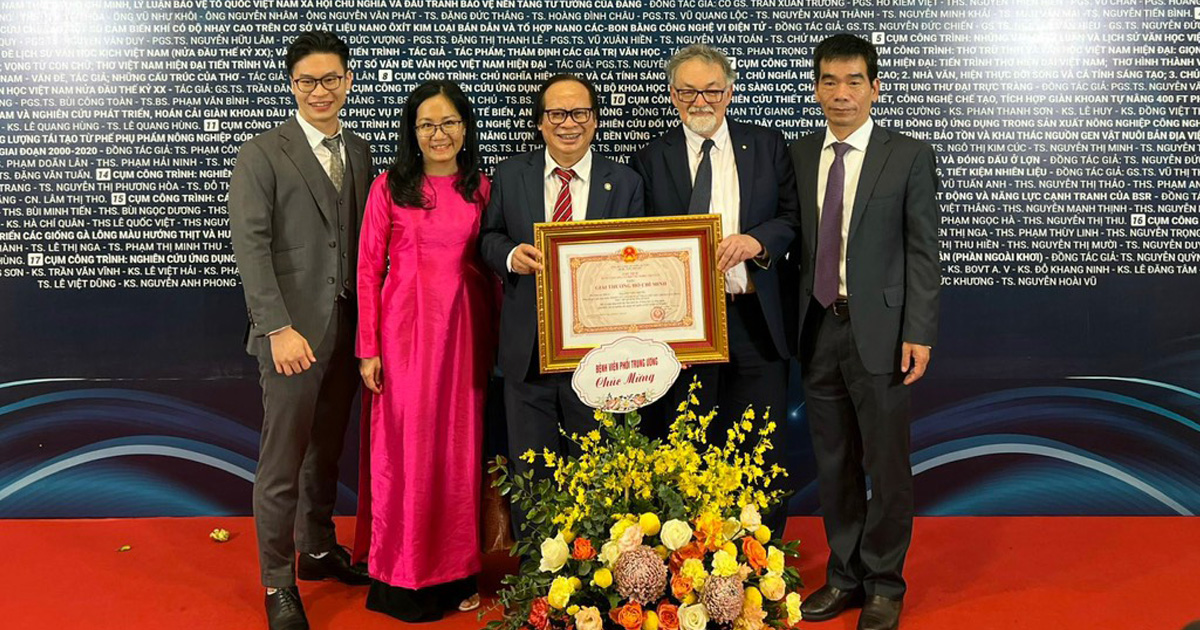The Woolcock Institute of Medical Research

Congratulations to our Vietnam team
Researchers from Woolcock Vietnam have received one of two 2022 Ho Chi Minh Scientific Prizes in health care, the first time this prestigious prize has been awarded to a research team that includes researchers from outside Vietnam.
Professor Guy Marks AM, Professor Greg Fox, and Dr Thu-Anh Nguyen are part of a group of infectious disease experts combating the spread of tuberculosis (TB) in Vietnam. Their award recognises their tireless research and advocacy on TB, which has spanned more than a decade.
"Our researchers have received this award for their long-term commitment to making health better for the people of Vietnam and the region," said Professor Carol Armour AM, Executive Director of the Woolcock Institute of Medical Research. "Their collaboration across institutions and countries is an example to us all of what can be achieved in research and translation."
Since 2009, the Australian researchers have collaborated with the National Tuberculosis Program to work closely with Vietnamese researchers across 135 clinics throughout Vietnam to find effective ways to tackle the challenge of eradicating TB.
Their work has included:
- developing a ground-breaking program to end TB through community-wide testing for, and treatment of, TB;
- finding new effective and shorter treatment regimens for latent TB infection and active TB disease; and
- improving treatment adherence and better management of side effects through digital health and social psychological support for TB patients.
Dr Thu-Anh Nguyen, Country Director of Woolcock Vietnam, said: "The findings of our studies have contributed to policy changes not only in Vietnam, but also many other high burden countries in the world, saving thousands of lives. However, we need to work harder to help the next generation to be free of this preventable infectious disease."
TB is an infectious disease that affects more than 10 million people each year. Vietnam is one of the countries with the highest burdens of TB in the world. Each year, over 100,000 people are found to have TB in Vietnam. However, at least another 50,000 people remain undiagnosed and often continue spreading the infection to others.
The Woolcock Institute of Medical Research has been undertaking significant research on TB in Vietnam for more than 10 years. As a result of our work, active case finding to detect TB is implemented widely throughout Vietnam, and in many other high burden countries in the world, saving thousands of lives.










